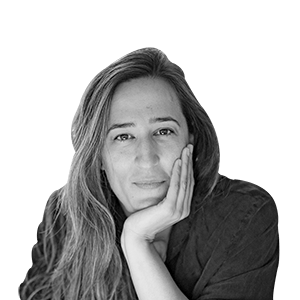The most iconic ARA cover, 15 years later
The newspaper ARA brings together Graciela, the girl from the first cover, with Oriol Broggi, grandson of the surgeon who also appeared in that first issue

A star seems to have walked in. Is that her? Wow, how amazing. As she walks through the newsroom, she passes the photography section. Francesc Melcion and Xavier Bertral, part of the original team, those who were there before November 28, 2010, stand up and say to her, "We're the ones who took your photos." They're talking about an iconic image for the newspaper, the one from the first issue, where a baby is being held by Dr. Moisès Broggi.
She's the little girl on the first cover. Her name is Graciela; she was the first baby born in 2010, and today, like the newspaper, she's 15 years old. "Do you know who the man holding you is?" we ask her. She says she looked him up and found out he was an important doctor. But she doesn't know much more; she says she was too young to remember that day. The image, meticulously planned, aims to capture in a single snapshot the legacy of Catalonia's past and the challenges of Catalonia's future through two people. Today, 15 years later, one of them is gone. Dr. Broggi, who was 102 at the time, died two years later, at 104, on December 31, 2012, the day before Graciela turned three. But the photograph is replaced by a conversation between Graciela herself and one of the surgeon's grandsons, Oriol Broggi, an actor and theater director. We propose that they meet, chat, and write a text that they can read during the ARA Night celebration. We meet at the Library of Catalonia, the space where La Perla 29, Oriol Broggi's theater company, rehearses. "You know what?" she says when they meet. "I think Grandpa would have loved this."
From Collbató to Mataró
Graciela is the daughter of a Catalan father and a Guinean mother. In 2010 she lived in Collbató; today she lives in Mataró, in the Cerdanyola neighborhood, with her mother and older siblings, who were able to come from Guinea. She's in her fourth year of secondary school (ESO), she likes school and some of her teachers, "especially Marta, my English teacher, and Arantxa, my Spanish teacher, who always notice if something's wrong." She says her mother always tells her to study. She works cleaning hotel rooms. "She works hard and honestly. I know I have to help out; there are a lot of us at home." And she knows exactly what she wants to do: she wants to be a Civil Guard officer.
Oriol smiles, Mom wrinkles her nose. "You'll have time to think about it," says Oriol, explaining that he actually enrolled in the History Faculty and ended up failing everything: "I'd already started doing other things related to the performing arts... And they ended up expelling me from the university." But she replies that she's clear that she's a "person of action" and that she wants to be a police officer.
We don't know what Moisés Broggi would say. He, who was head of the surgical team of the International Brigades during the Civil War and a renowned anti-fascist. "I still remember one day I showed up wearing a black shirt in the style of Ovidi Montllor," Oriol recalls. "He told me that I couldn't forget the past. And that it was a very marked symbol against which many people of his generation had fought," referring to the paramilitary forces of Mussolini's fascist regime.
The diaries
Do you read the newspapers? "Sometimes I wish I didn't know anything, because what I read worries me," says Oriol. Graciela answers with her eyes. Hers is a generation that obviously doesn't buy print newspapers, but neither does it get its news from online sources. "What worries me about your generation, about young people who have backward ideas," says Oriol. And Graciela explains that sometimes, at school, they say things half-jokingly, like "go to the kitchen" or "start cleaning." "But I always answer them back," she affirms. "And aren't you worried about anti-immigrant or racist rhetoric?" Of course, says Broggi. Graciela's mother intervenes, and says to her: "Do you remember the problems at school? You also had to put up with things because of the color of your skin..." Future
"It's certainly curious that my grandfather died on December 31st, and you were born on January 1st," says Oriol. He was 104 years old on that December 31st, 2012. A short time indeed. "I'm already halfway there, if I'm lucky enough to live as long as he did," he explains, adding that one day he was talking to them about everything he would have missed if he had died at the common age of 80: "Tenderness, peace, and reaping what he had sown." And what do you think about when you think of the future? We ask. They look at each other. "I've already done most of my work. I think I'd like to stop time," says Oriol, "and be able to stay a little as I am. I have my daughters at home, but they're grown now, and the truth is, it makes me feel very good to be with them. And I've been working hard for many years; I don't want to take too long to think about handing things over."
"And you, Graciela?" "I think I'd like to have children young. But not too many, two. And a big house, where I could have different floors and live with my partner, but also with my friends." "And me?" protests the mother, laughing. "Mom too, of course. I'm aware of everything she's done, and I also want to take care of her."
